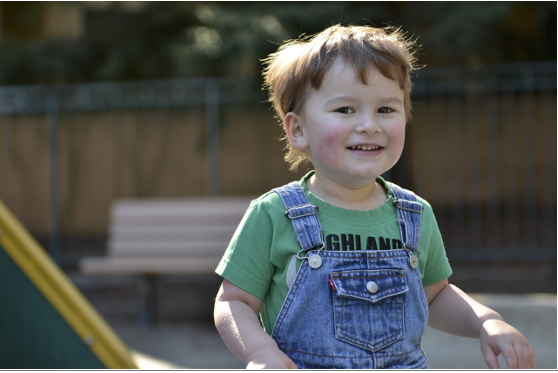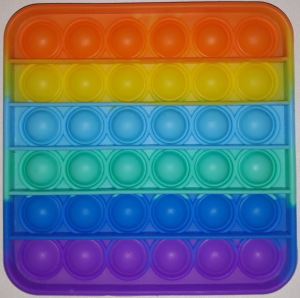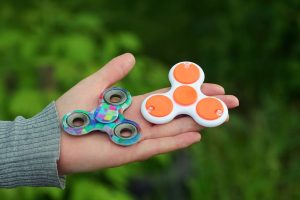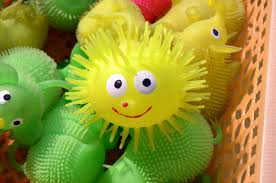
Playtime provides a unique opportunity for autistic children to learn and practice essential skills. It helps them develop their imagination, creativity, and problem-solving abilities. Through play, they can enhance their communication skills by imitating and interacting with others. Additionally, playtime can improve their motor skills, coordination, and spatial awareness. It allows them to explore different textures, sounds, and visual stimuli, which can contribute to their sensory integration and regulation.
Understanding autism and playtime
Selecting the right toys for autistic kids is crucial to maximize the benefits of playtime. The right toys can engage their interests, support their development, and promote positive play experiences. When choosing toys, it is essential to consider their specific needs, preferences, and sensitivities. Autistic children often have unique sensory profiles, so finding toys that cater to their sensory preferences can be highly beneficial.
Toys that offer a variety of sensory experiences can be particularly valuable for autistic children. They can help stimulate their senses and provide opportunities for sensory exploration and regulation. Toys with different textures, colors, sounds, and movements can engage their senses and support their sensory integration. For example, fidget toys with various textures can provide tactile stimulation, while toys that emit calming sounds can help soothe and relax them.
Benefits of playtime for autistic children
Playtime plays a crucial role in the development and well-being of autistic children. It offers numerous benefits that contribute to their overall growth and happiness. One of the significant advantages of playtime is its ability to improve social skills. Autistic children often struggle with social interaction, but through play, they can practice turn-taking, sharing, and cooperation. Playtime can also enhance their communication skills as they engage in pretend play and interact with others.
Furthermore, playtime provides a safe and enjoyable environment for autistic children to express themselves and regulate their emotions. It can serve as a platform for them to process their feelings, reduce anxiety, and develop emotional resilience. Play also promotes cognitive development by stimulating their thinking, problem-solving, and decision-making skills. It encourages them to explore, experiment, and learn through hands-on experiences.
Factors to consider when selecting toys for autistic kids
When selecting toys for autistic kids, several factors need to be considered to ensure a positive and beneficial play experience. Firstly, it is essential to choose toys that align with their specific interests and preferences. Autistic children often have intense interests in specific topics or objects, so incorporating those interests into their play can enhance their engagement and motivation.
it is essential to choose toys that align with their specific interests and preferences. Autistic children often have intense interests in specific topics or objects, so incorporating those interests into their play can enhance their engagement and motivation.
Additionally, considering their sensory sensitivities is crucial when choosing toys. Some autistic children may be hypersensitive to certain sensory stimuli, such as loud noises or bright lights. In such cases, opting for toys with adjustable volumes or dimmable lights can help create a more comfortable play environment for them.
Furthermore, the complexity of the toy should be taken into account. Autistic children may have different levels of cognitive abilities, so selecting toys that match their developmental stage is important. Toys that are too simple may not provide enough stimulation, while toys that are too complex may frustrate and overwhelm them.
Sensory toys for autistic children
 Sensory toys play a significant role in the playtime of autistic children. These toys are designed to provide sensory stimulation and support sensory integration. They engage multiple senses, helping autistic children regulate their sensory experiences and improve their sensory processing abilities. Here are some examples of sensory toys that can benefit autistic kids:
Sensory toys play a significant role in the playtime of autistic children. These toys are designed to provide sensory stimulation and support sensory integration. They engage multiple senses, helping autistic children regulate their sensory experiences and improve their sensory processing abilities. Here are some examples of sensory toys that can benefit autistic kids:
- Fidget toys: Fidget toys, such as stress balls or textured keychains, offer tactile stimulation and can help with focus and self-regulation.
- Weighted blankets: Weighted blankets provide deep pressure input, which can have a calming and soothing effect on autistic children.
- Bubble tubes: Bubble tubes offer visual stimulation with their mesmerizing colors and soothing bubbles, promoting relaxation and visual tracking skills.
Educational toys for autistic children
Educational toys are an excellent way to support the cognitive development of autistic children. These toys are designed to be both fun and educational, promoting learning in various domains. They can help improve problem-solving skills, fine motor skills, language development, and much more. Here are some examples of educational toys that can benefit autistic kids:
- Puzzles: Puzzles can enhance problem-solving abilities, spatial awareness, and hand-eye coordination.
- Building blocks: Building blocks promote creativity, imagination, and fine motor skills while encouraging open-ended play.
- Board games: Board games foster social interaction, turn-taking, and strategic thinking, while also providing a structured play experience.
Interactive toys for autistic children
Interactive toys can be particularly engaging for autistic children, as they offer opportunities for social interaction and communication. These toys encourage reciprocal play and can support the development of social skills. Here are some examples of interactive toys that can benefit autistic kids:
- Pretend play sets: Pretend play sets, such as kitchen sets or doctor kits, allow autistic children to engage in imaginative role-play and practice social scripts.
- Social storybooks: Social storybooks present social situations and appropriate responses, helping autistic children understand social cues and behaviors.
- Electronic learning toys: Electronic learning toys with interactive features can promote engagement, communication, and learning in a playful manner.
Recommended toys for autistic kids
While every autistic child is unique, certain toys have proven to be popular and beneficial for many. Here are some recommended toys that have shown positive outcomes for autistic kids:
- Sensory balls: These balls offer various textures and sensory experiences, promoting tactile and visual stimulation.
- Bean bags: Bean bags provide a cozy and calming seating option, supporting relaxation and sensory regulation.
- Art supplies: Art supplies, such as crayons, markers, and clay, encourage creativity, self-expression, and fine motor skills development.
Toy safety considerations for autistic children
When selecting toys for autistic children, it is essential to prioritize safety. Here are some safety considerations to keep in mind:
- Age appropriateness: Ensure that the toy is suitable for the child’s age and developmental stage to prevent any potential hazards.
- Material safety: Choose toys made from non-toxic materials and free from small parts that could pose a choking hazard.
- Durability: Opt for toys that are sturdy and can withstand rough play to ensure they last longer and remain safe.
Conclusion: Empowering autistic kids through playtime
 Playtime is an essential aspect of the development and well-being of autistic children. By choosing the right toys, we can empower them to thrive and reach their full potential. Sensory toys, educational toys, and interactive toys all play a significant role in supporting their growth and providing enjoyable play experiences. Consider their specific needs, preferences, and safety when selecting toys, and watch as playtime becomes a powerful tool for empowerment and enrichment.
Playtime is an essential aspect of the development and well-being of autistic children. By choosing the right toys, we can empower them to thrive and reach their full potential. Sensory toys, educational toys, and interactive toys all play a significant role in supporting their growth and providing enjoyable play experiences. Consider their specific needs, preferences, and safety when selecting toys, and watch as playtime becomes a powerful tool for empowerment and enrichment.
CTA: Explore our wide range of toys specifically designed for autistic children and start empowering playtime today!
Autism is a neurodevelopmental disorder that affects communication, social interaction, and behavior. Children with autism often struggle with sensory processing, making it challenging for them to engage in typical play activities. However, playtime is crucial for their development and well-being. It helps them learn important skills, build relationships, and explore their environment. Understanding how playtime can benefit autistic children is the first step in empowering them to thrive.
Playtime provides a unique opportunity for autistic children to learn and practice essential skills. It helps them develop their imagination, creativity, and problem-solving abilities. Through play, they can enhance their communication skills by imitating and interacting with others. Additionally, playtime can improve their motor skills, coordination, and spatial awareness. It allows them to explore different textures, sounds, and visual stimuli, which can contribute to their sensory integration and regulation.
The importance of choosing the right toys for autistic kids
Selecting the right toys for autistic kids is crucial to maximize the benefits of playtime. The right toys can engage their interests, support their development, and promote positive play experiences. When choosing toys, it is essential to consider their specific needs, preferences, and sensitivities. Autistic children often have unique sensory profiles, so finding toys that cater to their sensory preferences can be highly beneficial.
Toys that offer a variety of sensory experiences can be particularly valuable for autistic children. They can help stimulate their senses and provide opportunities for sensory exploration and regulation. Toys with different textures, colors, sounds, and movements can engage their senses and support their sensory integration. For example, fidget toys with various textures can provide tactile stimulation, while toys that emit calming sounds can help soothe and relax them.
Benefits of playtime for autistic children
Playtime plays a crucial role in the development and well-being of autistic children. It offers numerous benefits that contribute to their overall growth and happiness. One of the significant advantages of playtime is its ability to improve social skills. Autistic children often struggle with social interaction, but through play, they can practice turn-taking, sharing, and cooperation. Playtime can also enhance their communication skills as they engage in pretend play and interact with others.
Furthermore, playtime provides a safe and enjoyable environment for autistic children to express themselves and regulate their emotions. It can serve as a platform for them to process their feelings, reduce anxiety, and develop emotional resilience. Play also promotes cognitive development by stimulating their thinking, problem-solving, and decision-making skills. It encourages them to explore, experiment, and learn through hands-on experiences.
Factors to consider when selecting toys for autistic kids
When selecting toys for autistic kids, several factors need to be considered to ensure a positive and beneficial play experience. Firstly, it is essential to choose toys that align with their specific interests and preferences. Autistic children often have intense interests in specific topics or objects, so incorporating those interests into their play can enhance their engagement and motivation.
Additionally, considering their sensory sensitivities is crucial when choosing toys. Some autistic children may be hypersensitive to certain sensory stimuli, such as loud noises or bright lights. In such cases, opting for toys with adjustable volumes or dimmable lights can help create a more comfortable play environment for them.
Furthermore, the complexity of the toy should be taken into account. Autistic children may have different levels of cognitive abilities, so selecting toys that match their developmental stage is important. Toys that are too simple may not provide enough stimulation, while toys that are too complex may frustrate and overwhelm them.
Sensory toys for autistic children
Sensory toys play a significant role in the playtime of autistic children. These toys are designed to provide sensory stimulation and support sensory integration. They engage multiple senses, helping autistic children regulate their sensory experiences and improve their sensory processing abilities. Here are some examples of sensory toys that can benefit autistic kids:
- Fidget toys: Fidget toys, such as stress balls or textured keychains, offer tactile stimulation and can help with focus and self-regulation.
- Weighted blankets: Weighted blankets provide deep pressure input, which can have a calming and soothing effect on autistic children.
- Bubble tubes: Bubble tubes offer visual stimulation with their mesmerizing colors and soothing bubbles, promoting relaxation and visual tracking skills.
Educational toys for autistic children
Educational toys are an excellent way to support the cognitive development of autistic children. These toys are designed to be both fun and educational, promoting learning in various domains. They can help improve problem-solving skills, fine motor skills, language development, and much more. Here are some examples of educational toys that can benefit autistic kids:
- Puzzles: Puzzles can enhance problem-solving abilities, spatial awareness, and hand-eye coordination.
- Building blocks: Building blocks promote creativity, imagination, and fine motor skills while encouraging open-ended play.
- Board games: Board games foster social interaction, turn-taking, and strategic thinking, while also providing a structured play experience.
Interactive toys for autistic children
Interactive toys can be particularly engaging for autistic children, as they offer opportunities for social interaction and communication. These toys encourage reciprocal play and can support the development of social skills. Here are some examples of interactive toys that can benefit autistic kids:
- Pretend play sets: Pretend play sets, such as kitchen sets or doctor kits, allow autistic children to engage in imaginative role-play and practice social scripts.
- Social storybooks: Social storybooks present social situations and appropriate responses, helping autistic children understand social cues and behaviors.
- Electronic learning toys: Electronic learning toys with interactive features can promote engagement, communication, and learning in a playful manner.
Recommended toys for autistic kids
While every autistic child is unique, certain toys have proven to be popular and beneficial for many. Here are some recommended toys that have shown positive outcomes for autistic kids:
- Sensory balls: These balls offer various textures and sensory experiences, promoting tactile and visual stimulation.
- Bean bags: Bean bags provide a cozy and calming seating option, supporting relaxation and sensory regulation.
- Art supplies: Art supplies, such as crayons, markers, and clay, encourage creativity, self-expression, and fine motor skills development.
Toy safety considerations for autistic children
When selecting toys for autistic children, it is essential to prioritize safety. Here are some safety considerations to keep in mind:
- Age appropriateness: Ensure that the toy is suitable for the child’s age and developmental stage to prevent any potential hazards.
- Material safety: Choose toys made from non-toxic materials and free from small parts that could pose a choking hazard.
- Durability: Opt for toys that are sturdy and can withstand rough play to ensure they last longer and remain safe.
Conclusion: Empowering autistic kids through playtime
Playtime is an essential aspect of the development and well-being of autistic children. By choosing the right toys, we can empower them to thrive and reach their full potential. Sensory toys, educational toys, and interactive toys all play a significant role in supporting their growth and providing enjoyable play experiences. Consider their specific needs, preferences, and safety when selecting toys, and watch as playtime becomes a powerful tool for empowerment and enrichment.
CTA: Explore our wide range of toys specifically designed for autistic children and start empowering playtime today!